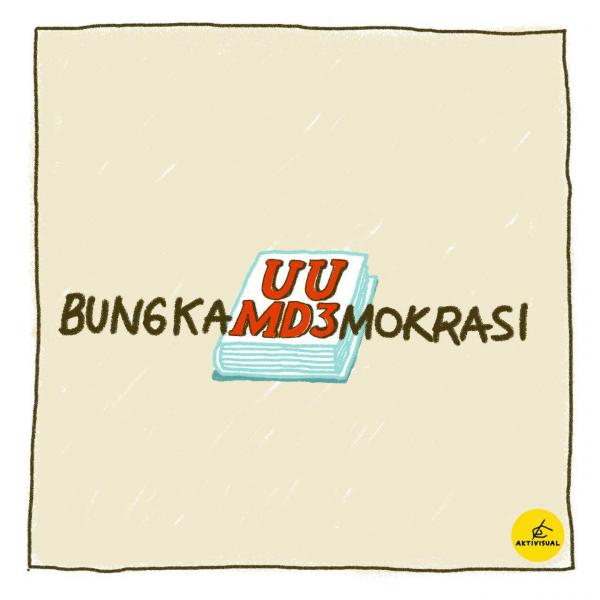Anomalies in the Revision of the MD3 Law

The House of Representatives (DPR) and the Government have finished discussing the revision of Law No. 17 of 2014 on the People’s Consultative Assembly (MPR), House of Representatives (DPR), Regional House of Representatives (DPRD) and the Regional Representatives Council (DPD), commonly known as the MD3 Law. However, the revision of the Law, passed on 12 February 2018, has introduced several new materials that result in a strong reaction from the public.
There are at least four elements in the MD3 Law that raised the polemics. The firstis the approval of the addition of one chairperson to the House of Representatives and three chairpersons to the People’s Consultative Assembly. It is known that the addition is not based on the institutional needs of the DPR and MPR. There has been no review and evaluation that urged the addition of the chairs. This addition is a political compromise to the party winning the 2014 legislative elections that failed to get a leadership position. This has been rumored early since the DPR began to serve in 2014.
Second, with regard to the oversight function by the DPR, Article 73 of the new MD3 Law allows the House of Representatives to forcefully summon a person for questioning with the involvement of the police. It also mentioned that the police coulddetain the person for a maximum period of 30 days. In fact, detention should only be done if there are two items of evidence showing that a person is a perpetrator of a criminal offense.
Third, the Board of Honor (MKD) is given the authority to take legal action against those considered to undermine the honor of the House of Representatives and its members. The provision in article 122 letter k of the MD3 Law implies that the DPR is not open to public criticism. It has failed to interpret the intent and cause of criticism. Criticism should be interpreted as a form of disappointment on the performance and image of the House and a public effort to encourage the House to transform into a better institution.
Fourth, the members of the House of Representatives can now only be summoned by the law enforcement upon the consideration of the Board of Honor (MKD). This provision in Article 245 of MD3 Law is contradictory to the Decision of the Constitutional Court No. 76/PUU-XII/2014. The MKD is an accessory to the House, and is not directly related to the criminal justice system, so the involvement of the MKD in the summoning of a member of the House is deemed not appropriate. The involvement of the MKD indicates that members of the House are reluctant to be summoned by the law enforcement, but are conversely “excited” to demand the summoning of the parties they desire to hear and deem insulting to the House. There is a contrasting spirit between Article 73, and Articles 245 and 122 letter k of the MD3 Law.
The public disappointment is not only directed against the House of Representatives, but also the Minister of Law and Human Rights as a representative of the government in discussing the revision of the MD3 Law. Minister Yasonna Laoly instead stated that the revision of the MD3 Law would improve the performance of the legislative and executive using the principle of check and balance.
The Indonesia Corruption Watch deems that none of the revision points lead to efforts to improve the DPR's work. Conversely, the controversial articles in the MD3 Law indicate that the revisions are merely aimed at reaching a compromise in the division of leadership of the DPR, and as a reaction against the public criticism against the House and the reluctance of the members of the House to be implicated in a legal process.
Seeing the public criticism of the closed discussion and controversial contents of the revision of the MD3 Law, the DPR and the Government should again revise the newly revised Law. If the DPR insists on refusing this demand, President Jokowi should immediately issue a Government Regulation in Lieu of Law (Perppu) to cancel the Revision of the MD3 Law. This step is not only intended to stifle public disappointment, but also to keep the legislature democratic and respectful of the independent judicial process. (Almas/Emerson)










